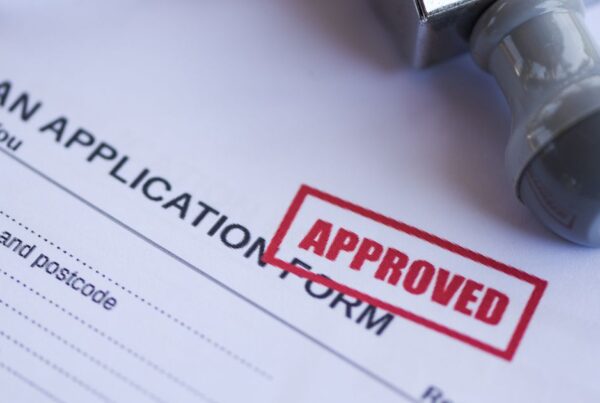By Eduardo Ayala.
An E-2 investor visa is a visa for citizens of certain countries to come to the U.S. to invest money in a business.
To be eligible there must first be a “treaty of commerce and navigation” between the United States and the country of the foreign national.[1] For a list of treaty countries check the Department of State website list at https://travel.state.gov/content/travel/en/us-visas/visa-information-resources/fees/treaty.html.
At least 50 percent of the business must be owned by the nationals of the treaty country.[2] The foreign national must be seeking temporary entry. In this sense, “expression of an unequivocal intent to return [abroad] when the E status ends is normally sufficient, in the absence of specific indications of evidence that the alien’s intent is to the contrary.”[3] The E visa applicant is not required to show intent to remain in the US “for a specific temporary period of time” or to show maintenance of a foreign residence.[4] The foreign national may “sell his or her residence and move all household effects to the United States.”[5]
An E-2 treaty investor may be admitted “solely to develop and direct the operations of an enterprise in which he has invested, or of an enterprise in which he is actively in the process of investing, a substantial amount of capital.”[6] The US enterprise must be bona fide.[7]
When adjudicating an E-2 visa application, consular officers have to confirm that: (1) the requisite treaty exists, (2) the individual and/or business possess the nationality of the treaty country, (3) the visa applicant invested or is actively in the process of investing, (4) the business “is a real and operating commercial enterprise”, (5) the visa applicant’s “investment is substantial”, (6) the visa applicant’s investment “is more than a marginal one solely for earning a living”, (7) the visa applicant “is in a position to develop and direct the enterprise”, (8) the visa applicant “intends to depart the United States when the E-2 visa status terminates”[8]
Critical elements are that the investment must be (a) real, (b) substantial and (c) bona fide.
Article continues after image…
(a) That the investment must be “real” means that the E-2 investor must have already or be “actively in the process of investing” capital for a US enterprise.[9] “Investment” is when the investor places capital (funds and other assets, not obtained from criminal activity) at risk to generate profits.[10] The investor must: (1) possess and control the funds; (2) put the investment capital at risk; and (3) irrevocably commit the capital to the E-2 enterprise.[11] “It is important to provide proof of actual purchases and/or signed contracts and leases related to the enterprise, not just wire transfers to a US account.”[12]
To show that the investment is real the applicant must show that he has possession and control of the funds or assets.[13] Possession of the funds may be demonstrated by bank statements and bank transfers with the foreign national named as the owner.[14] The source of the funds should be lawful.[15]
The investor must show also that the funds are at risk. On this the Department of State has said:
“The concept of investment connotes the placing of funds or other capital assets at risk, in the commercial sense, in the hope of generating a financial return…. If the funds are not subject to partial or total loss if business fortunes reverse, then it is not an ‘investment’ in the sense intended by [the statute]…. In short, at risk funds in the E-2 context would include only funds in which personal assets are involved, such as personal funds, other unencumbered assets, a mortgage with the alien’s personal dwelling used as collateral, or some similar personal liability.[16]
The investor must also irrevocably commit the capital. This means that the investment must not be “speculative” or unsubstantiated.[17] Mere intent to invest, or possession of uncommitted funds in a bank account, are not enough.[18]
(b) The investment of capital or assets must be “a substantial amount … as distinct from a relatively small amount of capital … solely for the purpose of earning a living.”[19] To determine whether the investment is substantial DOS uses the “proportionality test.” The test focuses on comparing the amount of funds invested vis-à-vis the cost of establishing the business.[20] DOS guidance says that “[n]o set dollar figure constitutes a minimum amount of investment to be considered ‘substantial’ for E-2 visas purposes.”[21] Instead the inquiry considers the proportion between the two figures: the amount actually invested and the value of the business.[22]
The investment cannot be “marginal.” “A marginal enterprise is an enterprise that does not have the present or future capacity to generate more than enough income to provide a minimal living for the treaty investor and his or her family.”[23] In other words, the business must create employment for people other than the investor and his family, and must make a significant economic contribution as a business. “The projected future capacity should generally be realizable within five years from the date the alien commences normal business activity of the enterprise”[24]
(c) The investment must be Bona Fide. It “must be [an] active commercial or entrepreneurial undertaking, producing some service or commodity,”[25] which operates for the purpose of earning a profit.[26] It must comply with “applicable legal requirements for doing business in the particular jurisdiction in the United States.”[27]
The E-2 visa applicant must also establish that he or she “does or will develop and direct the investment enterprise,”[28] The executive or supervisory scope of the visa applicant’s activities may be demonstrated by providing evidence of control over the enterprise based on ownership of at least 50 percent of the E-2 business; or “operational control through a managerial position or other corporate device.”[29] If the E-2 enterprise is a franchise, direction and development may be met if the investor will have authority to hire and fire employees, determine pay scales, and establish the hours of business.[30]
If you are or know someone from a treaty country that is interested in an E-2 Investor visa, email Eduardo Ayala at eayala@ayalalawpa.com or call our office at 305-570-2208.







